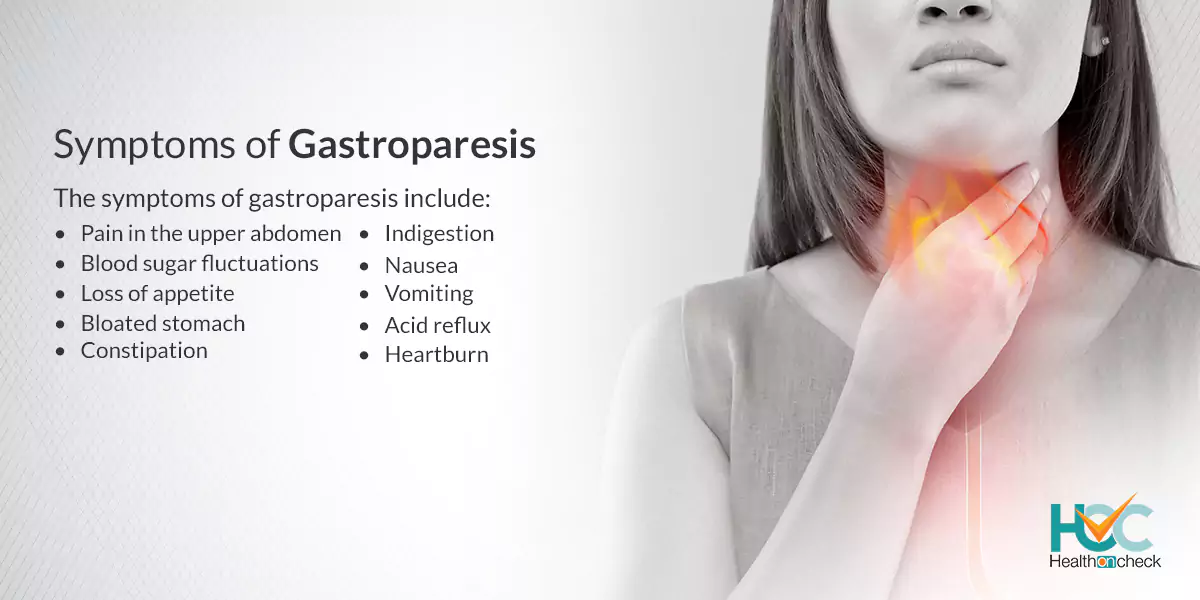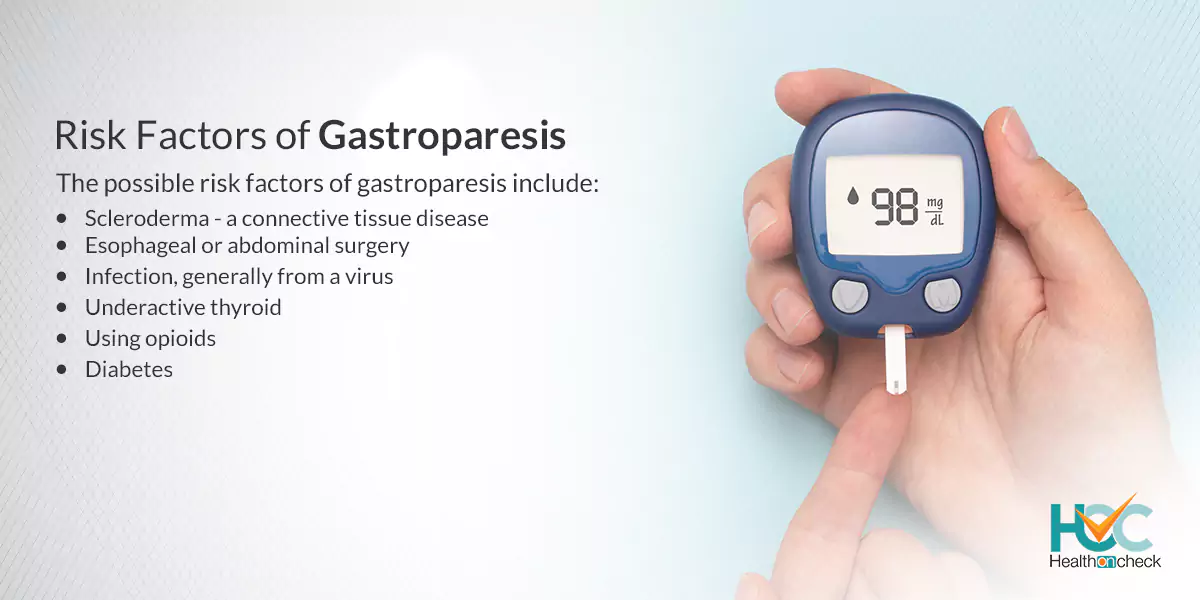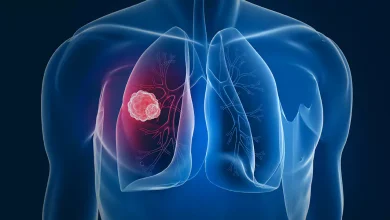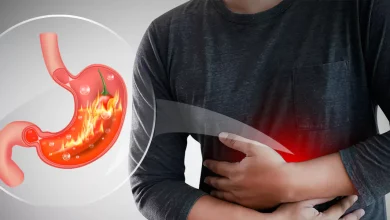What is Gastroparesis?

What is Gastroparesis?
Gastroparesis means stomach paralysis, which is a condition where the nerves and muscles in your stomach are affected. It hinders muscle activity (peristalsis) moving food through your stomach and into your small intestine. When your stomach muscles and nerves are not activated accurately, your stomach is not able to process food or empty itself the way it should. Because of this, your whole digestive process holds up. Gastroparesis can affect the normal digestion process, causing vomiting, nausea, and abdominal pain. It can also cause issues with blood sugar levels and nutrition. Although there’s no cure for gastroparesis, changing your diet, along with medication, can help manage and control the symptoms and provide you with some relief.
What are the Types of Gastroparesis?
Healthcare providers often classify gastroparesis into subtypes based on its cause. For instance, gastroparesis that happens as a side effect of diabetes is called diabetes-related gastroparesis. Gastroparesis that happens because of any complication of surgery is called post-surgical gastroparesis. Gastroparesis that happens for no identifiable reason is known as idiopathic gastroparesis.
What are the Symptoms of Gastroparesis?
The symptoms of gastroparesis include:
– Indigestion.
– Bloated stomach.
– Feeling full very quickly, for a long period.
– Pain in the upper abdomen.
– Nausea
– Vomiting.
– Spitting up whole pieces of food which are not digested properly.
– Loss of appetite.
– Acid reflux
– Heartburn.
– Blood sugar fluctuations.
– Constipation.
What are the Causes of Gastroparesis?
The causes of gastroparesis are not clear, but in some instances, it might occur because of harm to a nerve controlling the stomach muscles (vagus nerve).
The vagus nerve aids in managing the complex procedures in your digestive tract, such as giving commands to the muscles in your stomach to contract and provide food into the small intestine. A damaged vagus nerve is not able to send commands to your stomach muscles in the usual manner. This might result in food remaining in your stomach longer, despite moving into your small intestine for getting digested.
The vagus nerve and its branches might be damaged by diseases, like diabetes, or by surgery of the stomach or small intestine.
What are the Risk Factors of Gastroparesis?
The possible risk factors of gastroparesis include:
– Diabetes
– Esophageal or abdominal surgery
– Infection, generally from a virus
– Some particular medications that slow the rate of stomach emptying, like narcotic pain medications
– Scleroderma — a connective tissue disease
– Nervous system diseases, including multiple sclerosis or Parkinson’s disease
– Underactive thyroid
– Using opioids
– Women are more likely to develop gastroparesis as compared to men.
What are the Complications of Gastroparesis?
Gastroparesis can cause an array of complications, including:
– Severe dehydration
Gastroparesis generally causes vomiting which might lead to severe dehydration.
– Malnutrition
Poor appetite means your body is not getting enough calories, or you might not be able to absorb enough nutrients because of vomiting.
– Undigested food that hardens and remains in your stomach
Undigested food in your stomach might get hardened into a solid mass known as bezoar. Bezoars might lead to nausea and vomiting and can be life-threatening if they prevent food from getting into your small intestine.
– Unpredictable changes in blood sugar levels
Even though gastroparesis doesn’t lead to diabetes, regular changes in the rate and amount of food passing into the small bowel might result in unusual changes in blood sugar levels. Diabetes might get worse because of this. Also, not being able to control blood sugar levels can make gastroparesis worse.
– Decreased quality of life
The symptoms of gastroparesis can decrease your quality of life by making it difficult for you to work and carry out other responsibilities.
How Gastroparesis is Diagnosed?
There are various tests available to diagnose gastroparesis and rule out conditions that might be causing similar symptoms. Tests to diagnose gastroparesis might include:
Gastric emptying tests
This test checks how rapidly your stomach empties its contents. One or more of these tests may be done including:
– Scintigraphy
It is the most important test to diagnose gastroparesis. Here you need to eat a light meal, like eggs and toast, containing a tiny amount of radioactive material. A scanner detecting the movement of the radioactive material is attached over your abdomen to monitor the rate at which food is leaving your stomach.
During this test, you have to stop taking any medicines that might slow down the process of gastric emptying.
– Breath tests
During breath tests, you need to eat a solid or liquid food containing a substance that your body will absorb. After some time, the substance will be detected in your breath. Over a few hours, Samples of your breath are collected and then the amount of the substance in your breath is measured. The test shows how rapidly your stomach empties after having food by measuring the amount of the substance in your breath.
Upper gastrointestinal (GI) endoscopy
This test is done to examine your upper digestive system including your stomach, esophagus, and beginning of the small intestine (duodenum) visually. A small camera on the end of a long, flexible tube is used during this test. Upper gastrointestinal (GI) endoscopy can also be used to diagnose other conditions, including peptic ulcer disease or pyloric stenosis, whose symptoms can be similar to those of gastroparesis.
– Ultrasound
In this test, high-frequency sound waves are used to produce images of structures within your body. Ultrasound helps to diagnose whether problems with your gallbladder or your kidneys are responsible for causing your symptoms.
What are the Treatment Options Available for Gastroparesis?
The damages that cause gastroparesis cannot be fixed, but doctors can provide treatment to stimulate muscle contractions in your stomach encouraging it to empty. Medications are first used, and surgery is done when you don’t respond to medications or are not able to take them.
The treatment goals are to:
– Stimulate your stomach muscles and/or let your stomach empty.
– Assure your body has the nutrition and hydration it requires.
– Manage symptoms and side effects of this disease.
– Manage the cause, and prevent it from getting worse.
The treatment plan usually includes:
– Medications
Prokinetics are medicines stimulating gastrointestinal motility that are first given to treat gastroparesis. Prokinetics include:
Metoclopramide
This medicine helps in muscle contractions in your stomach along with helping to relieve nausea. This medicine can cause side effects, such as muscle twitching and tremors.
Motilin agonist
These are alternative kinds of prokinetic drugs that your doctor might prescribe. They include azithromycin and erythromycin which are generally used as antibiotics, but doctors also prescribe them for off-label treatment of gastroparesis.
– Serotonin agonists
Tegaserod and prucalopride are two serotonin agonists that are generally given to stimulate your bowels to improve constipation. Though they are not fully evaluated for treating gastroparesis, but some doctors refer them for that use.
– Dopamine antagonists
A drug known as domperidone might improve gastric motility and nausea by blocking a neurotransmitter known as dopamine.
Additional medications might include:
Antiemetics for controlling vomiting and nausea.
Proton pump inhibitors for controlling acid reflux.
Pain relievers for reducing stomach pain.
Diabetes medications for managing blood sugar.
Nutrition
You may be required to change your diet to improve your condition, for instance, eating less fibre and less fat helps to make digestion easier. You may also require more specific nutritional therapy to replace nutrients that are missing from your diet. You may be prescribed dietary supplements, or even temporary tube feeding or IV feeding. Some people might require IV fluids for rehydrating and correcting electrolyte imbalances.
Surgery
Surgery is done for gastroparesis treatment when other procedures are not working. Surgery is needed to modify your stomach to help food pass through it.
Surgery procedures for modifying your stomach include:
– Pyloroplasty
It modifies your pylorus, the muscular valve beneath your stomach that permits food to empty it. Most pyloroplasty include cutting into the pylorus muscle to relax and expand the opening. Its most recent variation, known as the G-POEM, is an endoscopic surgical procedure. It means that in place of cutting into your abdomen to enter your stomach, your surgeon will operate using an endoscope, a long tube that is passed through your mouth into your stomach.
– Gastric bypass
In some cases, bypassing the lower portion of their stomach fully might be needed, either because it’s not functioning anymore or because this method has more chances of being a success for your condition. A partial gastrectomy — detaching or closing off part of your stomach — and creating a new outlet from your stomach to your small intestine is required in this process. Gastric bypass is usually prescribed as a weight loss surgery, specifically for people with Type 2 diabetes linked to obesity, and it can have very good results for both conditions. It is usually recommended for severe diabetes-related gastroparesis.
Living with Gastroparesis
Gastroparesis can vary from mild to severe, and accordingly, it can affect your quality of life. Whilst there’s no quick solution for this condition, there are several treatment options available to help you manage it. Your doctor will closely monitor your condition to get the treatment plan that works best for you. You might need to make some diet and lifestyle adjustments for managing its symptoms.
Whom to Consult?
You should make an appointment with your doctor if you notice symptoms of gastroparesis, especially indigestion, vomiting, nausea, and pain in your abdomen. Usually, this condition is not life-threatening but it can make your life difficult and a few possible complications of gastroparesis can be fatal if they’re very severe. These complications are usually linked to dehydration, malnutrition, blood sugar fluctuations with diabetes, and electrolyte imbalances. Your doctor will treat you to lessen the risk of these complications. With proper care and treatment, the risk is very minimal.






